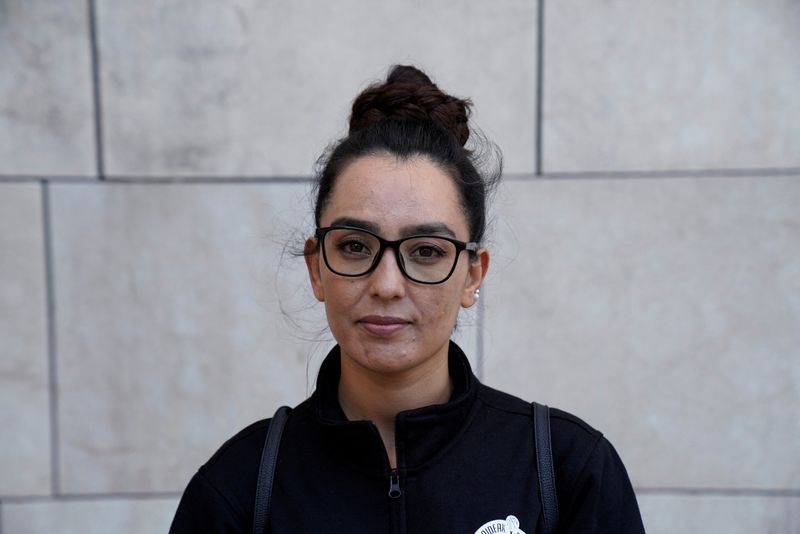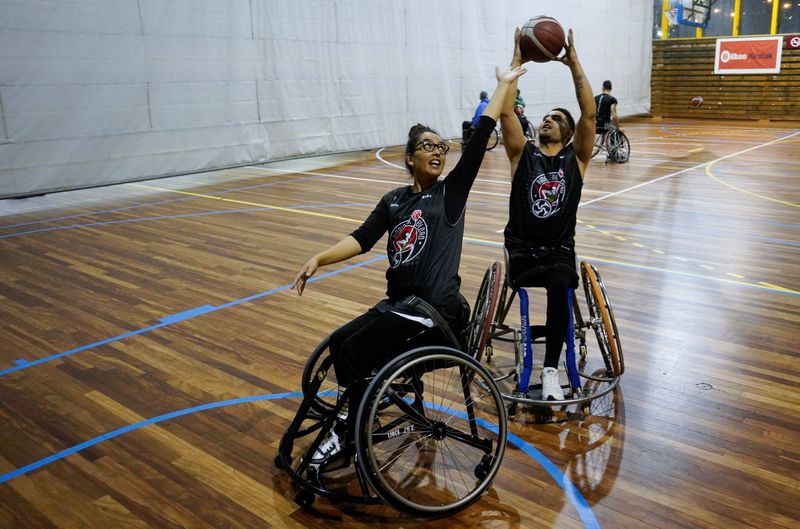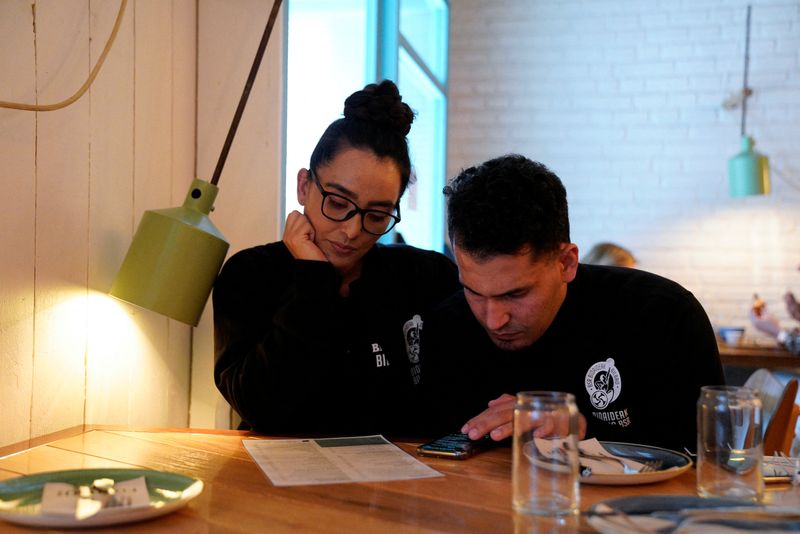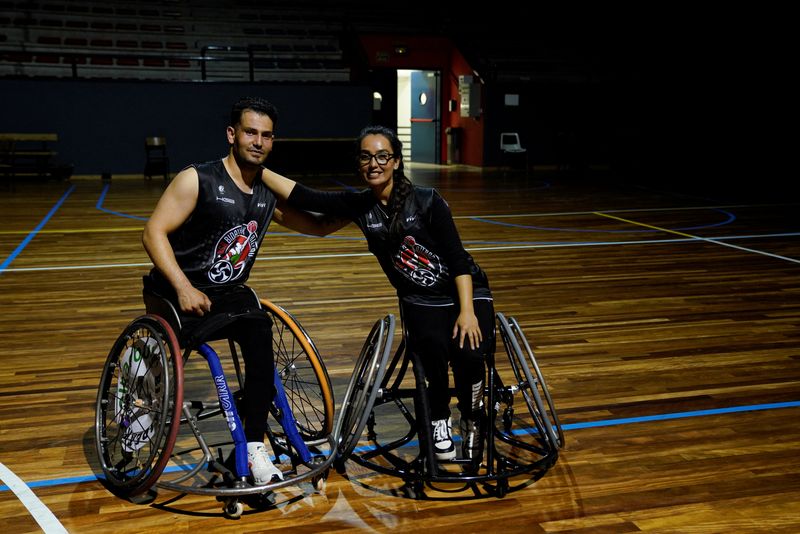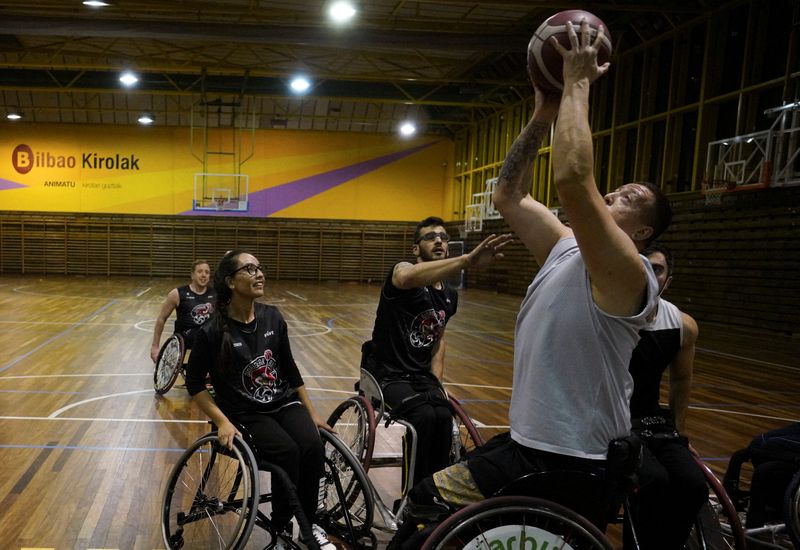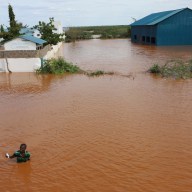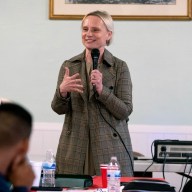BILBAO, Spain (Reuters) – Six months after fleeing Taliban rule in her homeland, Nilofar Bayat, former captain of the Afghanistan women’s wheelchair basketball team, is slowly adjusting to a new life in Spain.
“It is not easy to join a society quickly because everything is different,” said Bayat, who came to Spain with her husband Ramesh Naik after they received offers to play for Bidaideak BSR Bilbao, a mixed gender professional basketball team.
“It is a bit challenging for me how to behave with people, how to live here,” the 28-year-old said.
Bayat, who suffered a spinal cord injury as a two-year-old child when a rocket hit her family home in Kabul, left Afghanistan as she feared the Taliban would reverse the progress made in the past 20 years, especially on women’s rights.
Language has been one of the biggest challenges facing the basketball star, who speaks Farsi, Pashto and some English and has been attending daily Spanish lessons.
“The food is nice, the people are nice, but the problem is that I cannot share my feelings with them, I cannot share my ideals with them,” she said.
POLITICAL REFUGEES
Despite the language hurdles, Bayat, who trained as a lawyer in her homeland, hopes to create an association to help Afghan women, especially those with disabilities, in Spain and Afghanistan.
“I want to stay here and work for them, for those women that are here in Spain: I know how they start in life from zero like me,” she said.
She and Naik have so far been unable to play in professional matches due to their immigration status, but Bidaideak president Txema Alonso said that should soon change now they have been recognised as political refugees.
“This opens up the possibility of finding work, obtaining social benefits… and finally, to get a sports licence that will allow them to play,” said Alonso.
With Western countries cutting economic, cultural and other links with the Taliban government in Kabul, Bayat is concerned that her people are being abandoned by the outside world.
“Nowadays everyone is forgetting Afghanistan… No one is speaking about this, all the news is about other things,” she said. “There’s lots of challenges but no one speaks (of them).”
(Reporting by Vincent West; Writing by Nathan Allen and Emma Pinedo; Editing by Gareth Jones)

